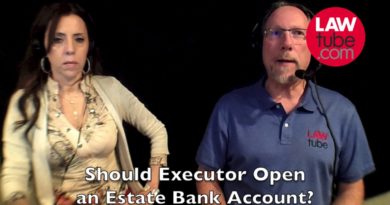Top 5 Probate Mistakes You Can Avoid Making
If you find yourself in the position of administering the estate of a recently deceased loved one, you may feel a little overwhelmed if this is your first time overseeing the probate of an estate. Along with trying to navigate a legal process with which you are unfamiliar, you ae also likely still grieving the loss of your loved one. Although it is always wise to consult with an experienced attorney when faced with the need to probate an estate, the Indianapolis probate attorneys at Frank & Kraft explain five probate mistakes that you can avoid making.
What Is Probate?
When someone dies, they typically leave behind an estate that is made up of all assets owned by the decedent at the time of death. Probate is the legal process whereby those assets are identified, valued, and eventually passed down to the new owners. Probate also lets creditors of the estate files claims against the estate and allows challenges to the validity of the decedent’s Last Will and Testament to be litigated (if applicable).
Probate Mistakes and How to Avoid Making Them
If you are in charge of probating an estate, either because the decedent named you as the Executor in a Will or because you were appointed in an intestate estate, you are responsible for overseeing the entire probate process. Hopefully, you will work with an experienced attorney to avoid mistakes; however, it helps to watch out for some common mistakes made while probating an estate, such as:
- Failing to secure assets. One of the first things an Executor should do is secure all known assets. This may be as simple as closing a financial account or as complex as winterizing a vacation home; however, failing to properly secure assets could lead to a decrease in the value of the asset.
- Failing to properly classify assets as probate or non-probate assets. Because not all assets are required to go through probate it is essential to categorize assets before beginning the probate of an estate. Non-probate assets bypass probate and can be distributed to beneficiaries immediately.
- Failing to use a small estate procedure if the estate qualifies. Formal probate can take over a year to complete and can be expensive. Most states offer a small estate alternative to formal probate for estates that qualify. Failing to check whether a small estate alternative is available could cost the estate time and money.
- Failing to properly notify creditors or review creditor claims. When you oversee the probate of an estate you must notify beneficiaries, heirs, and creditors that probate is underway. Known creditors should be notified personally while unknown creditors are notified via publication in a local newspaper. When claims are filed, you must review those claims and approve or deny them. Failing to notify creditors or review claims could be a costly mistake.
- Distributing assets early or without regard to priority. Before probate assets can be distributed to beneficiaries or heirs of the estate, you must pay approved claims against the estate. In addition, any estate taxes due must be calculated and paid and the costs of administering the estate must be paid. These expenses usually take priority over gifts made or intestate succession rules. Therefore, distributing assets too early or failing to abide by the order of priority can jeopardize the estate.
Do You Need Help Probating an Estate in Indiana?
For more information, please join us for an upcoming FREE seminar. If you have additional questions or concerns about how to avoid making probate mistakes, contact the experienced Indianapolis probate attorneys at Frank & Kraft by calling (317) 684-1100 to schedule an appointment.
Paul Kraft is Co-Founder and the senior Principal of Frank & Kraft, one of the leading law firms in Indiana in the area of estate planning as well as business and tax planning.
Mr. Kraft assists clients primarily in the areas of estate planning and administration, Medicaid planning, federal and state taxation, real estate and corporate law, bringing the added perspective of an accounting background to his work.
Latest posts by Paul A. Kraft, Estate Planning Attorney (see all)






